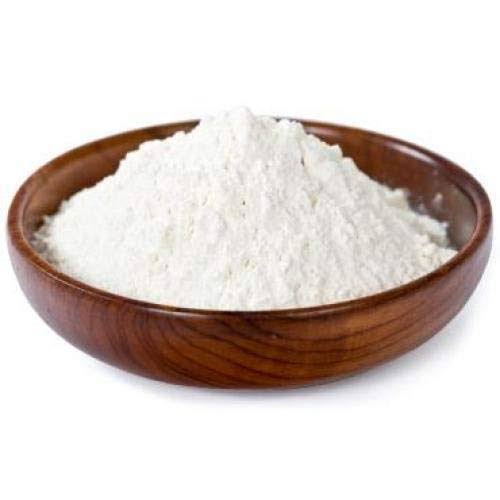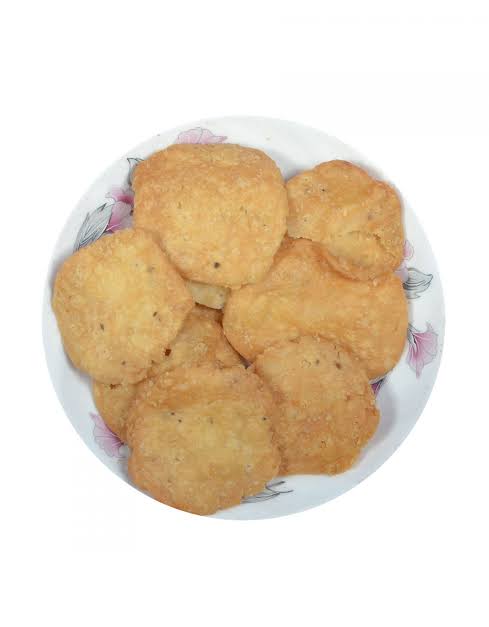Health Desk
Sandeep Dhand Ludhiana
Journalist and Research Analysist
In today’s health-conscious world, people are becoming more aware of the food they consume and its effects on their body. Among the many dietary concerns, maida (refined flour) has been under scrutiny for its potential health impacts. While it forms an integral part of many popular dishes worldwide, especially in South Asian and Western cuisines, the question arises: Is maida truly harmful to our health?
This article will explore what maida is, how it is processed, the potential health risks, and whether or not it can be a part of a balanced diet.

What is Maida?
Maida is a type of refined flour made from wheat, primarily used in baking and cooking. The wheat grain is composed of three main parts:
- The bran – the outer layer rich in fiber and nutrients.
- The germ – the inner part containing essential fats, vitamins, and minerals.
- The endosperm – the starchy middle layer.
When wheat is processed into maida, the bran and germ are removed, leaving only the starchy endosperm. This refining process strips the flour of much of its nutritional content, including fiber, vitamins (such as vitamin E), minerals (like magnesium and iron), and essential fatty acids. What remains is a soft, white flour that is easier to work with but has minimal nutritional value.
The Role of Maida in Our Diet
Maida is used in a wide range of foods, including bread, pastries, biscuits, cakes, pasta, noodles, and fried snacks like samosas and puris. The reason it’s so popular in cooking is due to its smooth texture, elasticity, and neutral taste, which make it versatile for many culinary applications.
However, the widespread use of maida, especially in processed and fast foods, has raised concerns about its health implications.

Why is Maida Considered Harmful?
- Low Nutritional Value: As mentioned earlier, maida is a refined product devoid of its original fiber and nutrients. What’s left is a simple carbohydrate that spikes blood sugar levels. Foods made from maida are essentially ‘empty calories’—they provide energy but lack essential nutrients like vitamins, minerals, and fiber that your body needs for optimal functioning.
- Impact on Blood Sugar Levels: Maida has a high glycemic index (GI), meaning it causes a rapid increase in blood sugar levels after consumption. This can be particularly harmful to individuals with insulin resistance, pre-diabetes, or diabetes. Regular consumption of high-GI foods like maida can contribute to insulin resistance over time, which increases the risk of developing Type 2 diabetes.
- Weight Gain and Obesity: Foods made with maida are often highly processed and combined with unhealthy fats, sugars, and preservatives. They are calorie-dense but not filling, leading to overeating. This is why frequent consumption of maida-based foods can lead to weight gain and obesity. The lack of fiber means these foods do not satisfy hunger effectively, causing a person to consume more than necessary.
- Digestive Issues: Since maida lacks fiber, it can negatively impact digestion. Fiber plays a crucial role in maintaining bowel health by promoting regular bowel movements and preventing constipation. A diet low in fiber can lead to issues such as indigestion, constipation, and even increase the risk of more serious conditions like irritable bowel syndrome (IBS) or diverticulitis.
- Heart Health: Consuming maida regularly can also have adverse effects on heart health. Refined carbohydrates like maida can raise triglyceride levels and reduce the amount of “good” HDL cholesterol in the blood. This increases the risk of heart disease, high blood pressure, and stroke. Additionally, many processed foods made with maida are high in unhealthy trans fats, which further exacerbate heart-related issues.
- Link to Chronic Diseases: Several studies have linked diets high in refined carbohydrates, including maida, to a higher risk of chronic diseases like diabetes, obesity, and heart disease. Regular consumption of maida can also contribute to metabolic syndrome, a cluster of conditions that increase the risk of these diseases.

Can Maida Be Part of a Healthy Diet?
While maida has many potential downsides, it doesn’t necessarily mean you need to eliminate it completely from your diet. Moderation is key. If you consume maida occasionally and in controlled portions, especially as part of a diet that includes whole grains, vegetables, and other nutrient-dense foods, it may not have a significant negative impact on your health.
Here are some tips to reduce maida intake or make healthier choices:
- Opt for Whole Grains: Whenever possible, choose whole-wheat flour or multigrain alternatives to maida. Whole-wheat products retain the bran and germ, making them much richer in fiber and nutrients.
- Read Labels: When purchasing packaged foods, check the labels. Avoid products where refined flour (maida) is the main ingredient, or opt for those made with whole grains.
- Cook at Home: Preparing food at home allows you to control the ingredients. You can easily replace maida with whole-wheat flour, oat flour, or almond flour in most recipes without sacrificing taste.
- Limit Processed Foods: Processed foods are often made with maida and unhealthy fats. Reducing your intake of processed snacks and fast foods can significantly lower your maida consumption.
- Add Fiber-Rich Foods: If you do consume maida occasionally, balance it with fiber-rich foods like fruits, vegetables, legumes, and whole grains to aid digestion and prevent blood sugar spikes.

Conclusion
In conclusion, while maida is not inherently harmful, its frequent consumption—especially in the form of processed foods—can contribute to various health issues, including weight gain, digestive problems, and increased risk of chronic diseases like diabetes and heart disease. It’s crucial to be mindful of how much maida you include in your diet and to opt for healthier alternatives whenever possible. By making small but meaningful dietary changes, you can improve your overall health without sacrificing your favorite foods.
Balancing indulgence with moderation and healthier options is the key to enjoying food while maintaining a healthy lifestyle.